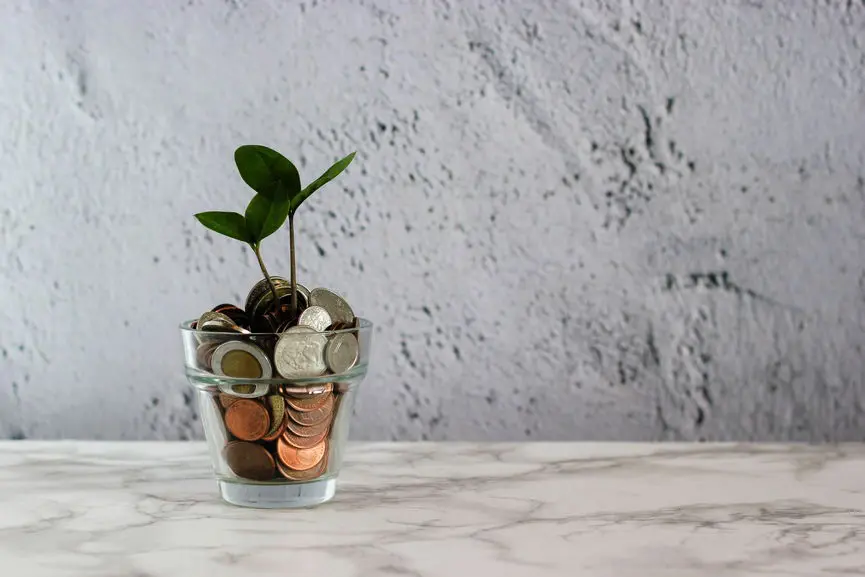Anyone can become financially successful by establishing the right habits. Success is about making the right choices, and habits are the key to success. The following are examples of habits that will help you achieve financial stability:
Learning how to invest and make money
Learning how to invest is an important skill that you should learn. People often think of investing as a complicated and difficult process, but it doesn’t have to be. There are a few tips to consider:
● Start with a small amount of money
It’s always better to start small when learning something new, and this is no exception. If you don’t feel comfortable investing in the stock market, then at least look into other options like bonds or mutual funds until you feel more confident about your abilities and knowledge base when it comes to investing. Moreover, there are also many simple ways to make money online for those who want to earn extra income. Remember, choose the options that are great fits for your needs.
● Diversify your portfolio
Don’t put all of one type of investment in one place. You need diversity so that if one investment falls out of favour or becomes less popular for some reason (like changes in technology). There are other investments available that can help make up for those losses while still growing overall value over time.
● Avoid short-term speculation
If an opportunity sounds too good to be true (i.e., making millions overnight), then it probably isn’t worth taking on due diligence before committing any capital dollars because most likely there will be hidden fees or other risks associated with whatever product or service being offered which may not end up being worth what consumers thought they would get back after spending money upfront on initial costs associated with purchasing products or services involved.
Watching your spending
One of the most important habits to develop is watching your spending. You need to know where your money is going and be able to control it. The best way to do this is by having a budget that you stick with, but even if you don’t have a formal budget, you can still keep track of what’s coming in and going out.
The first step in watching your spending is learning the difference between needs and wants. Needs are things like food, shelter, clothing and medical care; wants are everything else: movies, books, vacations etc. When you’re able to identify your needs as separate from your wants it helps with keeping control over how much money goes out each month because once we start buying something we want (even though it may not be necessary), it can become difficult for us not buy more things that we want later on down the road (also known as “the sunk cost fallacy”).
Paying off debt
Paying off debt quickly is one of the best moves you can make to improve your financial stability and success. Your debt payment history will be factored into your credit score for years to come, so it’s important to pay all of your bills on time and keep as little debt as possible.
When you have no outstanding debts, you’ll be able to apply for loans or mortgages at lower rates because lenders will see that you’re a low-risk borrower who has proven their ability to repay their debts. Having a clean slate also allows people in good standing with creditors more flexibility when it comes time for home renovations or car purchases since they don’t need to worry about honouring other loans with banks or other lending institutions.
Saving up on an emergency fund
The first step to financial stability is having an emergency fund. This is a bank account you can access in case of an emergency, such as losing your job or experiencing an unexpected medical expense. An emergency fund should be enough to cover at least three months of expenses, but if possible, aim for six months or more.
Your emergency fund doesn’t have to be large. It just needs to be big enough that its presence won’t cause you to worry when the unexpected occurs. For example, if someone in your family gets sick and needs expensive treatment that’s not covered by their health insurance plan (or whatever other coverage they have), this money would be available immediately without having any effect on your other savings accounts or investments—and without having to take out a loan from another source like a credit card or payday lender.
Once you’ve set up an account for saving up for emergencies only (perhaps at a bank), don’t touch it unless there’s some kind of real-world crisis going on in your life. It should remain untouched until then because if it becomes accessible too soon while still small compared with overall financial assets then this will lead people who don’t know any better including yourself.
Using a budgeting app or tool
It is important to track your spending and set financial goals. The best way to do this is by using a budgeting app or tool. There are many different options available, so find one that works for you and stick with it.
Conclusion
There are many different steps you can take to become financially stable and successful. Some of the most important ones include watching your spending, saving up for emergencies and investing for retirement. But whatever approach works best for you, it’s important that you establish good habits early on so that they stick with you for life.

